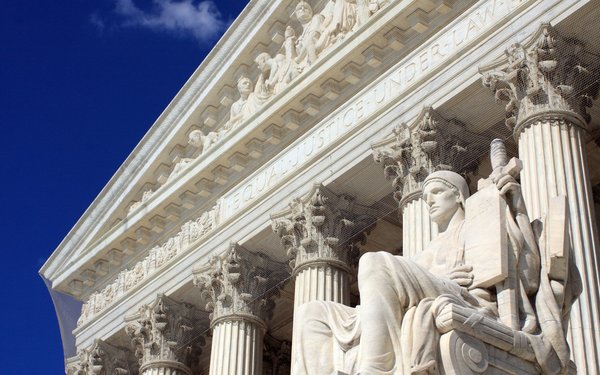
Several of the
Supreme Court's right-wing judges on Wednesday appeared skeptical of a class-action settlement that allowed Google to resolve privacy claims by giving $5 million to various nonprofits -- including
groups the company previously donated to.
“Don't you think it's just a little bit fishy that the money goes to a charity or ... organization that Google had contributed to in the
past?” Chief Justice John Roberts asked an attorney for the plaintiffs during the hearing.
The hearing stemmed from a challenge to the settlement by Ted Frank, founder of the Center for
Class Action Fairness. He argued that the deal should have been rejected, because it didn't provide compensation to any Google users.
The deal resolved a 2010 class-action complaint alleging
that Google violated users' privacy by including their search queries in "referer headers" -- the information that's automatically transmitted to sites users click on when they leave Google. Some
queries, like people's searches for their own names, can offer clues to users' identities. (Google no longer transmits search queries when people click on links in the results.)
advertisement
advertisement
The deal calls
on Google to donate $5.3 million to six nonprofits -- Carnegie Mellon University, World Privacy Forum, Chicago-Kent College of Law, Stanford Law, Harvard's Berkman Center and the AARP Foundation. The
settlement also requires Google to pay more than $2.1 million to the attorneys who brought the lawsuit.
Frank noted that Google has independently given money to the Stanford Center for
Internet and Society.
A trial judge and the 9th Circuit Court of Appeals rejected Frank's challenge to the settlement. Frank then asked the Supreme Court to consider his arguments.
The
dispute drew the attention of the White House, which argued in a friend-of-the-court brief that Google and other companies
shouldn't be able to make donations to settle class-actions if it's feasible to give money directly to consumers. The administration asked the Supreme Court to return the case to a trial judge for a
new assessment of the settlement.
Google defended the deal, arguing that any attempt to distribute funds directly to Google's users wouldn't be feasible.
During Wednesday's hearing,
Justice Brett Kavanaugh asked Google's attorney, Andrew Pincus, whether it would have been preferable to compensate some Google users -- even if chosen randomly -- than none.
“Isn't it
always better to at least have a lottery system, then, that one of the plaintiffs, one of the injured parties gets it, rather than someone who's not injured? Why isn't that always more
reasonable?” Kavanaugh asked.
Roberts specifically expressed doubt about the idea that cases should be resolved by a party agreeing to make donations to advocacy groups.
“You may be in an auto accident with someone who's speeding. That doesn't mean you automatically think that highway safety is affected and the speed limit should be changed,” Roberts
said. “You just want money because of what happened to you.”
The chief justice also questioned why AARP was named as a fund recipient in a privacy case, asking Pincus whether he
thought privacy issues were “going to be meaningfully redressed by giving money to AARP.”
Justice Samuel Alito appeared the most critical of the settlement. “At the end of
the day, what happens? The attorneys get money, and a lot of it. The class members get no money whatsoever,” he said. “And money is given to organizations that they may or may not like and
that may or may not ever do anything that is of even indirect benefit to them. ... How can such a system be regarded as a sensible system?”
But Justice Sonia Sotomayor said she
thought deals that required companies to donate to charities were relatively rare, and that judges tended to reject those deals if they were “potentially abusive.”
Some of the
judges also questioned whether Google users who sued were injured by the alleged data leak. The Supreme Court ruled two years ago that consumers can only sue if they suffered a
“concrete” injury.
Justice Neil Gorsuch asked why allegations that Google leaked a user's name warranted a lawsuit. “Do we know that he was injured?” Gorsuch asked.
Gorsuch and several other judges raised the possibility of returning the case to the trial judge for a decision about whether the people who sued were injured.